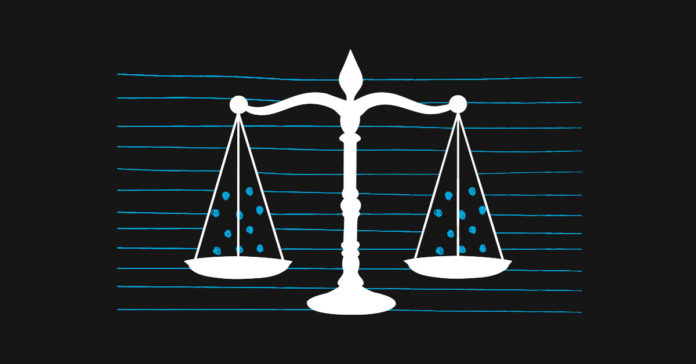I’d first like to spend some time highlighting the conception of hell that I’ll be defending. The first point is that hell is a retributive punishment for failing to accept the religion of Islam without a valid excuse according to the criteria laid out by Allah سبحانه وتعالى.
Now, when we say “retributive punishment,” as in contrast to “reformative punishment,” we mean that the primary purpose of hell as a punishment for disbelief isn’t to reform and purify the kafir, but rather to serve as a just penalty for the crime of kufr. It is a punishment that is deserved and merited, meaning it is intrinsically fitting that those who died upon disbelief incur such a punishment.
The underlying purpose of retributive punishments is to restore moral order, so to speak. When a crime is committed against somebody, the person who committed the crime undermined and devalued the victim. For moral order to be restored, the criminal must face a consequence that exhibits and demonstrates to everybody that what he did was wrong. And that consequence must be in the form of a punishment or penalty that adequately and fairly reflects the severity and extent of the crime that was committed and offset it for justice to be restored. That very restoration of moral order and affirmation of the value of justice is a praiseworthy thing to be pursued in and of itself. It is inherently the right thing to do, and thus aspire towards actualizing, regardless of any consequences, such as whether the criminal is reformed or not.
Thus, hell as a punishment for disbelief is not primarily meant to have consequentialist outcomes such as the rehabilitation of the kafir or to merely serve as some kind of deterrence or any other purpose but is rather a punishment that is meted out against those who are worthy of it and is done to satisfy the demands of justice. The justice being retributive, not restorative.
Punishing people for the crime of kufr with hell is not ultimately remedial in its intent and effect, but rather justice-serving. Again, I’m specifically speaking about hell applied as a punishment against kuffar for the crime of kufr, not Muslim sinners who may enter hell temporarily.
Now, in theory, a punishment could serve two benefits simultaneously, namely, enacting retributive justice and seeking to rehabilitate the criminal. Even in human administrations of justice, we seek to protect society from criminals, maintain social order, deter people from engaging in criminal acts, and help criminals rehabilitate and reintegrate back into society. All those consequential motives of the criminal justice system are well recognized. There’s no issue there. But to say that restorative or consequentialist- driven justice is the only or even primary goal of justice is problematic. Because if that were the case, then it’s possible to achieve those objectives by meting out what we would all find to be disproportionate punishments to people.
For example, let’s say that the punishment for rape is that the rapist pays the victim 90% of all his money for the rest of his life. One could try to argue that this is a pretty good deterrent from committing rape, but most of us would argue that even if it is a good deterrent, it’s not just because a financial penalty, even a really heavy one, doesn’t suffice for punishing people who commit the extremely serious and disgusting crime of rape. The physical and mental harm inflicted upon the rape victim cannot be justly accounted for merely through the implementation of a financial penalty. On the flip side, however, one may argue that the punishment for a rapist could be castration and brutal non-stop torture for ten years non-stop. Now we could all agree that this is a very strong deterrent, but is it truly just and proportionate as a punishment, or is it over the top?
Let’s take another example. Let’s think of jaywalking. Let’s say the fine for jaywalking is 500 US dollars. Most would argue that this seems pretty fair; however, is it really a strong deterrent for a billionaire? Hardly. But at the same time, do we really believe it’s fair and just to fine billionaires hundreds of millions of dollars for jaywalking, simply because we believe that would be an effective deterrent discouraging billionaires from jaywalking? As much as many of us may not like many of the billionaires out there, I think we’d all agree that this wouldn’t really be just, even to them.
Now, why am I bringing all this up? I’m bringing this up to make clear the fact that punishments and penalties do not only factor consequences into the equation. Punishments and penalties must be deserving and proportionate to the crime committed. They must be inherently just and not be sheerly consequentialist-driven in their intended goals.
And the punishment of hell in Islam is no different when it comes to punishing people for kufr. Allah سبحانه وتعالى says about people in hell:
هَلْ تُجْزَوْنَ إِلَّا مَا كُنتُمْ تَعْمَلُونَ
“Are you recompensed except for what you used to do?” [Qur’an 27:90]
In other words, hell is your just and due punishment.









